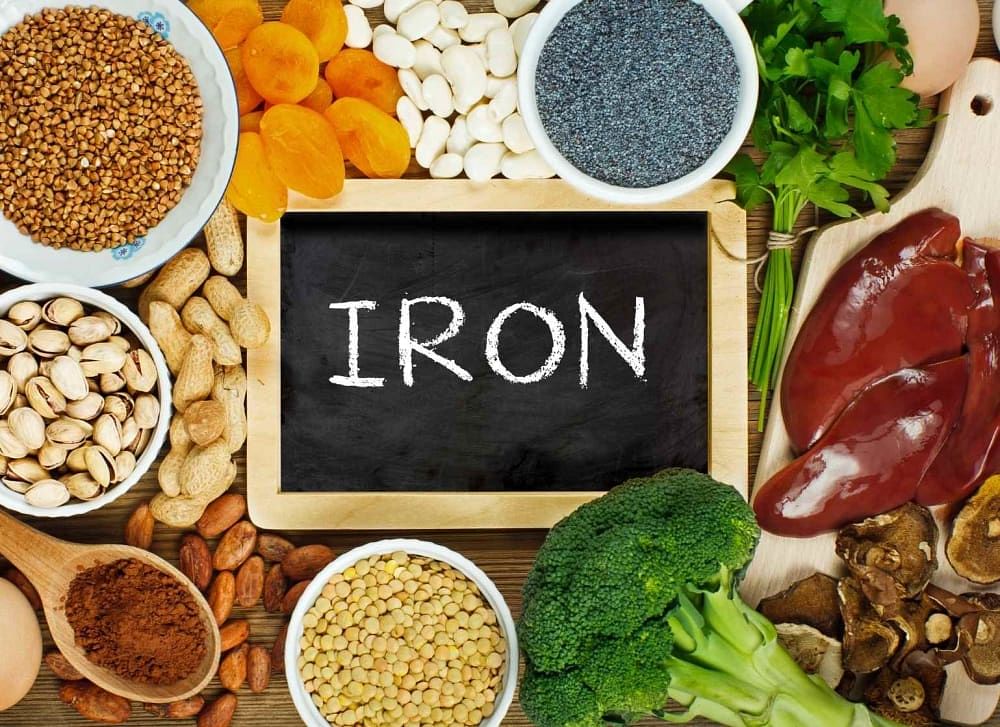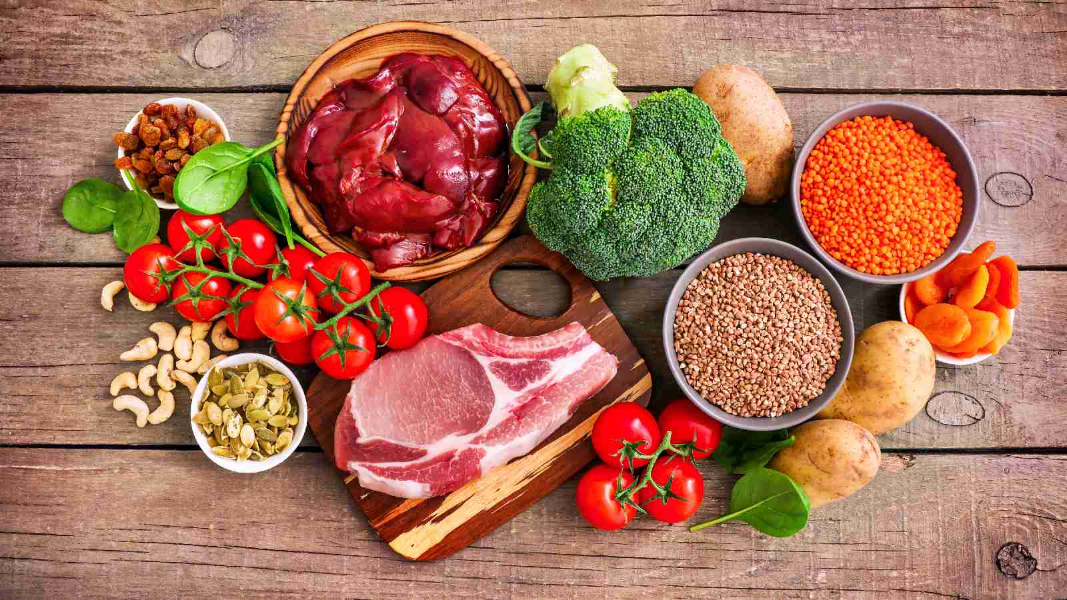- Iron is crucial for well-being, especially for Pakistani women prone to deficiency. Factors like not having enough iron rich foods, limited healthcare access, and genetic influences contribute to iron deficiency.
- Incorporating iron-rich foods like spinach, red meat, legumes, nuts, seeds, and pomegranates can be a delicious solution to address iron needs in the body.
- Iron is an important mineral for overall well-being, especially for women in Pakistan who often find themselves susceptible to iron deficiency.
Iron resides within our bodies, notably in haemoglobin within red blood cells (RBCs) and myoglobin within muscles. Haemoglobin plays a vital role in transporting oxygen from the lungs to various body tissues, ensuring a vital supply for cellular functions. Meanwhile, myoglobin serves as an oxygen reservoir, strategically storing oxygen for release as needed by the body.
Iron Deficiency in Women in Pakistan
Iron deficiency among Pakistani women can be caused due to a combination of factors. Dietary habits play a significant role, with some women not consuming enough iron-rich foods, such as red meat, legumes, and dark leafy greens. A majority of women live below the poverty line in Pakistan and may not be able to afford foods which are iron rich.

Additionally, the common experience of heavy or prolonged menstrual bleeding in women of reproductive age contributes to iron loss. The increased iron requirements during pregnancy and breastfeeding, if not met through diet, can lead to deficiencies. Parasitic infections, particularly in certain regions, may interfere with iron absorption.
Limited access to healthcare, including prenatal care and nutritional education, can result in undiagnosed or untreated iron deficiency. Genetic factors may also play a role in some cases, affecting iron absorption.
5 Iron Rich Foods to Boost Iron Levels for Pakistani Women
In Pakistan, where flavors and culinary traditions define the local diet, incorporating iron-rich foods is a delicious and essential way to ensure a healthy iron level in the body.
Spinach:
Palak, or spinach, is not just a vibrant green in Pakistani dishes but also a powerhouse of iron. Whether sautéed with garlic, stirred into curries, or tossed into fresh salads, spinach is a versatile ingredient that can be added to daily meals.
Red Meat:
For those who enjoy a savory meal, red meat, such as beef and mutton, is an excellent source of heme iron. Heme iron is highly absorbable by the body, making it an efficient way to boost iron levels. Opt for lean cuts and balance red meat consumption with a variety of other nutrient-rich foods.
Legumes:
Legumes locally known as (daal’s) are a dietary staple in Pakistan and a fantastic source of non-heme iron. Lentils (daal), chickpeas (chana), and other legumes are not only budget-friendly but also provide a significant nutritional punch. From soups to stews and curries, there are countless ways to incorporate legumes into your diet.
Also read:
5 Health Benefits Of Almonds Every Woman Should Know
Nuts and Seeds:
Snacking on a handful of nuts or incorporating seeds into your meals boosts your iron intake. Almonds, pumpkin seeds, and sesame seeds are packed with nutrients, making them an ideal addition to your daily nutrition.
Pomegranate:
The crown fruit, luscious and juicy pomegranate is not only a treat for the taste buds but also a great source of iron. Whether enjoyed as a fruit or fresh juice, pomegranate is the best way to contribute to your daily iron requirements.
Follow WOW360 for more.

